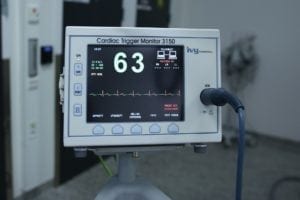Grants offer helpful funding for medical research and scientific development. In case you missed it, researchers from Cleveland Clinic and Case Western Reserve University earned a $2.95M grant from the National Institutes of Health (NIH) in July 2021. According to the news release, the grant, delivered over a 4-year period, will support research in artificial intelligence (AI), imaging, and risk prediction for atrial fibrillation (AFib) recurrence.
Atrial Fibrillation (AFib)
First, it is important to understand what atrial fibrillation (AFib) actually is. AFib is an irregular and abnormally rapid heart rate that begins in the upper chambers of the heart (the atria). When these chambers are not coordinating with the lower chambers (the ventricles), blood flow is interrupted and the heart beats irregularly. AFib is the most common form of arrhythmia and may be long-standing (continuous, lasting for 1+ years), occasional or paroxysmal (symptoms come and go, may stop after minutes or hours), persistent (requiring treatment to return to normal), or permanent (where heart rhythm cannot be restored). Risk factors for AFib include stimulant exposure, obesity, increasing age, European ancestry, or cigarette or alcohol use. Additionally, AFib can result from high blood pressure, coronary artery disease, diabetes, congenital heart defects, metabolic imbalances, or viral infections (among others). Symptoms include:
- Lightheadedness
- Exercise intolerance
- Fatigue
- Heart palpitations
- Irregular heartbeat
- Shortness of breath
- Chest pain
- Dizziness and/or confusion
The Grant
Currently, some patients with AFib are treated using ablation, a procedure which restores normal heart rhythm, especially if medication does not work. But how can doctors figure out which patients with AFib may experience recurrence following ablation?
This grant funding will help researchers answer this question through the development of non-invasive imaging technology. During the 4-year research period, researchers will first evaluate data from a variety of cardiac computed tomography (CT) scans. Next, researchers will identify specific features which highlight an increased risk of atrial fibrillation recurrence. Finally, researchers will scan data from over 2,000 patients who underwent ablation and develop a new AI-driven risk prediction tool.








